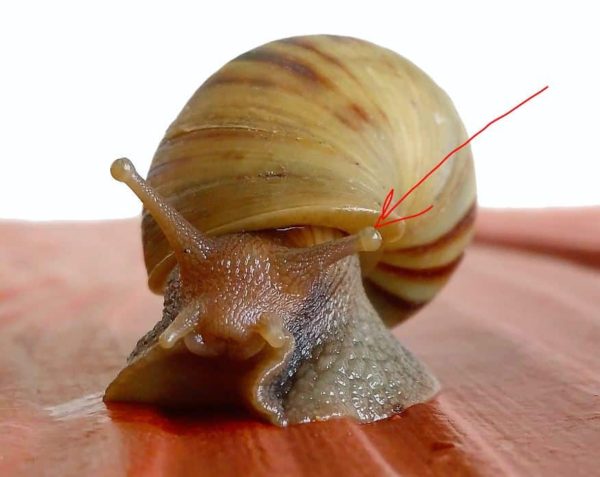Snails are one of the most fascinating creatures to humans. For this reason, some individuals, especially kids, may consider keeping them as pets. These snails have primitive brains, and they can’t express feelings or emotions in a way we understand.
So Can you bond with snails? It may be difficult to bond with your snail pet or tell when your snail is experiencing pain. Although these snails are silent, they are very sociable. If you are fascinated by the snail creature and what to find out more about their personalities, you should keep reading this article.

You can read also on snail behavior in Snail Behavior and their Nature – Your Top Questions Answered .
.
You might also be interested in learning more about slugs, which are very similar yet still different from snails in What is the Difference Between Slugs and Snails .
.
Keeping snails as pets
Snails move in a different pattern compared to other animals; hence they can be interesting to handle and watch. They don’t need to have a human intervention to thrive in their dwelling. Therefore, snails can be easy pets to keep if you have kids that are interested in nature.
Snails have grown in population as pets and are becoming a great alternative to other reptile pets like fish. They are small, quiet, and are relatively cheap to maintain. However, just like any other pets, we keep around, you require to consider a few things before committing to keeping snails as pets. Here are some of the considerations:
- Your schedule
Snails appear to be crepuscular or nocturnal creatures, hence are believed to be most active when people are retiring to bed, sleeping, or waking up in the morning.
If you consider keeping snails a pet and want to watch their activities, then get prepared to be a night owl.
You will have to stay awake late in the night to feed your snails as you enjoy their slow moves.
- Kids and snails
Some kids may love hanging around with unique pets like snails, while others may not be comfortable with them around. Snails move differently compared to other animals, making watching and handling them very interesting. They don’t require human intervention to thrive, hence very easy to keep as a pet.

- Handling snails
When handing snails, there are a few aspects you need to consider, ensuring you do not cause these creatures any harm:
- Always wash your hands properly with water and soap to remove any harmful oils, lotions, and natural elements that the African snail may absorb off your skin.
- With slightly wet hands, scoop up the African snail below its foot in order to break the suction.
- Never pick up an African snail by its shell, as this may damage the body muscle that attaches the snail’s body to the shell. If you expose the snail’s body by damaging the shell, it will die. For more about snail shells, check out How does a Snail Make its Shell? Your Full Guide on the Snail Shell

- Zoonotic concerns
Snails may harbor dangerous parasites that may cause infection to humans, especially if the snail originates from the wild. Therefore, it is advisable to always ensure that you wash your hands before and after handling the snails in order to keep yourself safe. Do not kiss the snails or allow kids to put them in their mouths.
- Snail’s budget
Snails are generally very affordable pets. You only need to get a small water tank as an initial investment and fresh vegetables, calcium, substrate, and fresh fruits. You also require providing sphagnum moss, and cuttlebones used for pet birds,
- Space required for snail
Snails generally take a small space. You simply require a one-gallon tank per snail, which takes a small, a couple of feet. Snails require things inside the tank to burrow in and chew on. However, they do not need a playground outside their enclosure to thrive.
- Legal concerns
Certain snail species, such as the Giant African Land Snails, are illegal to own in certain countries like the USA due to invasiveness concerns and the fact that they are pests to crops. You require checking with the state laws before resolving on keeping a snail as a pet.
- Snails’ life span
The life spans of snails vary depending on their dwelling environment. Most wild snails have a typical life span of 2-5 years. However, some larger snail species can live longer, up to 15 years. It is not easy to tell the age of a snail picked in the wild to be raised as a pet.
Can snail slime make you sick?
Yes, snail slime may contain a significant number of parasites that can spread certain diseases to humans in comparison to the snail’s body itself. Ingestion of these parasites may cause infection to human health.
Also, you may be infected when you accidentally or deliberately consume raw snails that contain lung warm larvae or if you consume unwashed raw leafy vegetables that are contaminated by snail slime. Our article on African snails and health sheds more light on the diseases transmitted by snails.
sheds more light on the diseases transmitted by snails.
Snail personality and emotions
Do snails have personalities?
Snails are very sociable, silent, small, harmless creatures and can have a longer life span depending on the dwelling environment. They are nocturnal and unique from their physical appearance to their personality.
Like many animals that feel and think, snails do not have a unified brain. Instead, they possess a series of brainy ganglia and deploy only two cells in their body to make a complex decision about feeding.
Surprisingly, they sometimes respond like they have emotions or feelings; however, their minds are distinct from birds, mammals, or reptiles. (Source )
)
Do snails have emotions and feelings?
Generally, snails do not have emotions or feelings as we understand them. They cannot process physical sensation or emotional information since they have only an extremely primitive brain and a fundamental nervous system. As a result of this, they do not feel any physical pain when hurt.
The sense of pain is one of the most depressing moments any living creature can pass through but, it is not easy to tell if a snail is feeling pain. However, they sense salt, heat, and other harsh environmental changes.
Certain species of snails have memories that do not last a day, while other ‘smarter’ ones can memorize information for barely a week.
On emotional love, snails do not have any emotional feeling like other like-minded animals such as lobsters and worms. Snails do not bond with owners or mates, neither do they feel love. (Source )
)
Do snails cry?
Snails may not cry like humans from fear or pain. However, in a strange twist, they cry constantly because their body reassembles an eye. Snail’s body, just like an eye is unprotected, soft sensory collecting tissues that require constant hydration, a factor that makes them fluids constantly.
Do snails get sad or lonely?
Snails may feel stressed when isolated. However, their stress is not really similar to longing for companionship. Snails basically have nothing to be sad about. They equally have nothing to be sad with, since they do not have the necessary brain development and nervous system for emotions. (Source )
)
Why do we think snails are cute?
The appearance of snails is fascinating. They are so unique compared to other creators. The soft body, the tentacles, and the classy shell have remained a trademark for these creators. They for sure give an additional incentive to love them. Their reactions; especially the tentacles curling down when searching for food are particularly cute.

Conclusion
Just because a snail’s brain is primitive does not mean they are not thoughtful! We might think they do not communicate because they do not express feelings in a manner that people would recognize them.
They do not have a physical feel and lack the intellect and facilities to process any form of emotions. However, snails can sense the feeling of hunger and food within their surroundings.

